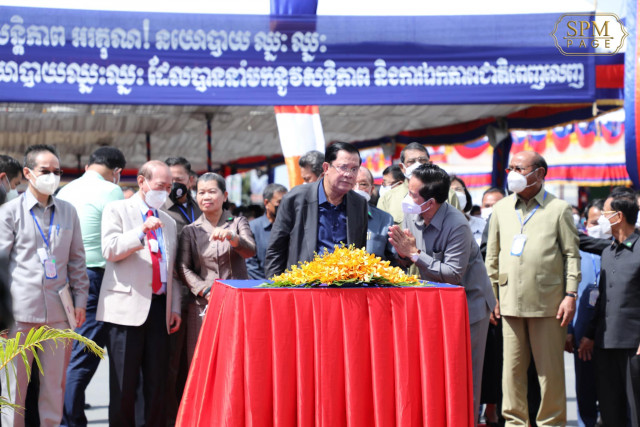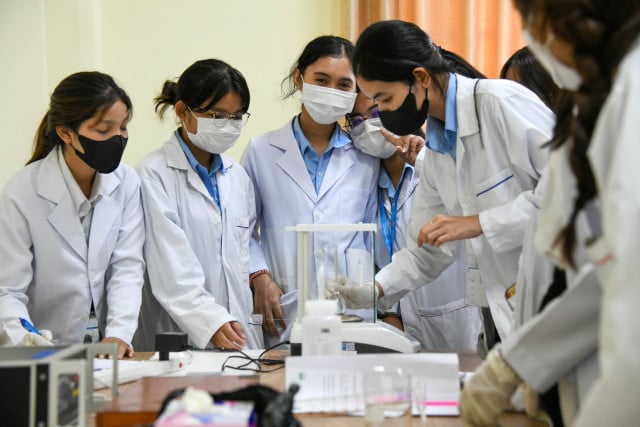Top Jobs Created as Local Authority Powers Grow

- By Sam Sopich
- September 1, 2022 1:53 PM
PHNOM PENH – The Cambodian government has increased the number of deputy governors to delegate powers and strengthen public service delivery at the local level, the Prime Minister says.
However, critics said the ruling party was just creating jobs to earn more votes for the next year's election.
Speaking at a flyover groundbreaking ceremony on Aug. 31, Hun Sen said the government needs to delegate work and increase jobs at the local level.
“The delegation of power to the lower levels is not for the officials to sit down and have a chitchat, but to carry out a lot of work,” he said.
Kong Monika, president of the Khmer Will Party, said he would appreciate the hard work of the government to increase the number of governor jobs if it benefits the public.
“If the aim is to improve public services to solve the problems faced by the people, we welcome it, but we see that this increase is meant to prepare the next step for the ruling party at a lower level for the election in 2023,” he said.
Monika said the increase in seats is less useful in ensuring public services or efficiency as the performance is still low.
He said some countries are trying to cut civil servant numbers but Cambodia was increasing them, which was an arrangement only for the next generation of ruling party officials to gain work experience.
Yong Kim Eng, president of the local People's Center for Development and Peace, said it was good to have many people such as deputy governors oversee work, but the issue was whether they would fulfil their roles completely as the old system did not change.
Officials do not work well because their bosses fear losing their benefits and reputation. This was why some deputy governors don’t have a chance to work fully. They just sit in the office and work a little.
Kim Eng said there are many deputy governors but only one or two are used. This was an obstacle to the effectiveness of the local administration.
“Generally, If the job generates less profit, they get the deputy governor to do it, but if they expect a high income, they work in partisanship,” Kim Eng said.
“Due to nepotism, it is a challenge to work effectively and this hinders the public service.”
To promote local administration effectively, Kim Eng suggested that the government should implement the national decision on the division of roles and responsibilities of the Board of Governors.
Governors must clearly divide the work and monitor the work clearly and ensure that local administrations perform their duties and remain non-partisan.
The new Article 140 of the Law on the Administration of the Capital, Provinces, Municipalities and Districts says there should be from seven to 11 members of the Capital-Provincial Board of Governors and of the Board of Governors of 5 to 7 districts.
The Council of Ministers approved the law in April.















